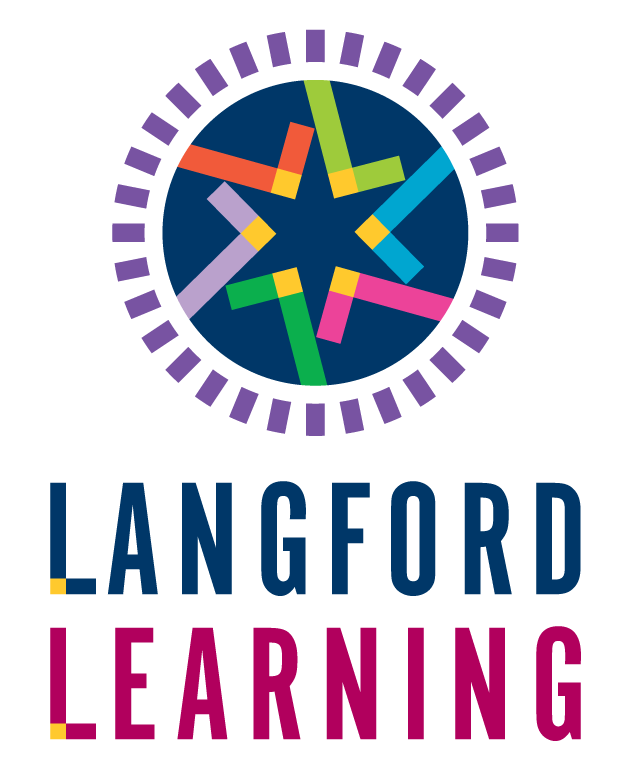Joy in Learning: Deming in Education with David P. Langford (Part 1)
- David Langford
- Education, Podcast
- 0 Comments

This podcast was originally published on In Their Own Words for The W. Edwards Deming Institute
Deming frequently discussed the right to joy in work and in learning. But what does that mean exactly? David P. Langford explains Deming’s intent, particularly as it applies to education.
TRANSCRIPT
Stotz: My name is Andrew Stotz, and I’ll be your host as we continue our journey into the teachings of Dr. W. Edwards Deming. Today we’re gonna be talking about the Langford application of Deming to bring joy in learning. David Langford has devoted his life to applying Dr. Deming’s philosophy to help teachers and students get the most out of learning. David, let’s get into it. I think we should start with what is joy in learning as one point.
Langford: Yeah, it sounds like sort of a mamby-pamby phrase like, “Oh, let’s just all have joy in learning,” or something that you might put on a poster and put on a wall, and Deming was probably the first one that got me to understand that those key phrases and stuff like that aren’t gonna change the system at all, and that you actually have to change the system. So having joy in learning is different than thinking about joy in the education system as a whole, because I may really enjoy what I’m learning at the university or in an elementary classroom, but the way in which the system is run is not fun, it’s not joyful. So the places that can really optimize both are the places that are gonna attract the most students, are gonna have the teachers that are happier, they’re gonna have students that are happier, and when students are happier, parents are happier, and everything just starts to function better. So while it is a phrase, joy in learning, it’s also a depth of knowledge about thinking about systems and what do you have to do in a system to achieve that?
Stotz: And one of the questions is like, what is the aim of the system? And I’m thinking about… There was a point in time where I didn’t really like reading or doing homework or whatever, and then there was just a switch that went off where I just started reading books. And now I’ve read thousands of books in my life, and it’s a pleasure to read books. And that switch brought joy to me as a learner. Is the… What is the objective of education in the world? Why are we doing this? Is it just babysitting kids or is it to transform or what?
Langford: Well, a lot of systems over the last 20 years or more have gotten misguided because they think the aim of the system is just to get test scores, and so when you set up a system just to get test scores, just to get those numbers, and Deming admonished us about that very thoroughly. That’s what you’re gonna get. But if you sort of break down learning and start to think about what were the most… Well, I do this all the time with educators and have them recall the most impactful learning experiences that they ever had in their entire education career, and they’ll talk about making airplanes in sixth grade, or they’ll talk about all kinds of applications and making robots, and they actually will get very excited about that. Oh, it was so exciting ’cause we got to do this. Nobody ever, ever says, “Oh, it’s so exciting to get the top score on my SAT test, or… ” Mostly, it was just a relief of pressure to get that or that, “Oh, every year, when we take that standardized test, that was so exciting. See what my score was and see how I advanced.” Nobody’s gonna remember any of those things.
Langford: So you’re not gonna test in quality into a system, and if you’re really optimizing joy in learning in a system, you may not have the very best test scores that you could get through drill and practice and getting people to get those scores. But a lot of systems, what they do is they drive out 1 the joy in learning, and exactly what you’re describing, Andrew, is that… I don’t think… I met Deming after I already had a Master’s degree and I’d been teaching for a number of years, and I realized at that point, I’d never read a book, I couldn’t even name a book that I had read simply for the joy of reading it. The only reason I would read a book is because it was assigned in the class, and you had to read this to get a grade or do a book report, or you had to do something, and so you had to discover that joy of reading, even though the system wasn’t actually teaching you to do that. But wouldn’t it be glorious worldwide if our systems were actually teaching and developing a joy of reading, wanting to read, and that takes a different, much, much different type of approach.
Langford: I have five children, and I’ll never forget my oldest daughter, by second grade, she already knew she wanted to be a writer, and she was telling people… They say, “What do you wanna be when you grow up?” And she said, “I wanna be a writer.” And the people were kinda stunned by that, but one of the reasons she did is because she had a second grade teacher and he knew that she just loved to write, and one day in the library, she was looking for books, and he walked up next to her and he pulled a book off the shelf and he said, “You know, one day I’m gonna pull this book off and it’s gonna say, ‘By Kendra Langford on it.'”
Stotz: Wow.
Langford: She never, ever forgot that, and now has a Master’s degree in Creative Writing. But it can be so simple, and that’s what Deming was talking about with the profound knowledge psychology of what you’re doing and how you’re managing the system, and the impact that it could have years and years later, and people ask Deming, why should we stop grading people and doing all this testing and all this kind of stuff, and he would say something like, “Well, since I don’t know who among them is going to be great 15 or 20 years from now, why would I wanna limit their performance now with a grade?” See, that’s a much deeper long-term purpose of what it is you’re trying to do and what it is you’re trying to develop.
Langford: The great irony is, the more you work on developing a system like that, your test scores go up because there’s a joy in learning, and people are making neural connections that are lasting, and recall is happier. There’s a lot of research on it, when you learn something and then later you recall it, whether that’s a year later or years later, the first thing you recall is the emotion attached to that. So a lot of times in my seminars, I’ll just say to people, “Tell me some emotions when I say the word math,” oh my gosh. People are like, “Fear, tense, hatred.”
Stotz: No joy?
Langford: No joy, no. There’ll be some people like that, that’ll be, “I love it,” and usually, most of the audience were groan, but there are people that despite whatever the system does to you, I’m still gonna have joy in math because I just have a preponderance of cells in that part of my brain I was born with and I get a lot of pleasure and a good feeling when I’m actually doing that.
Stotz: It brings up a point too, that sometimes when we look at education, we think, “Okay, we have superstars that are really good at it, maybe those are the only ones that are really gonna be able 2 to get true joy out of it,” whereas it sounds like what you’re saying is, it’s about one of the objectives of the system of education is it should be to bring joy in learning to everybody.
Langford: Yes, and I’ve known hundreds of valedictorians, the people that we would point to and say, “Okay, well, these were the people that really aced the system,” and wouldn’t those be the people that have the most joy in the learning system and it is not that way. So I know for my own children as they were going through the system, and my two oldest daughters are valedictorians, and I tried constantly to help them see that that’s great, that you wanna do that and you understand the value of that long-term, but there’s also a great joy in helping others in your classroom. I’ve heard this a lot about MBA classes, that they’re so competitive that a professor will give an assignment and then students will run over to the library and check out all the books in the library so other teams, other students can’t get them. Well, that’s a strategy to get the highest grade. Get the highest grade you can, and if that’s your aim, you’re gonna employ a lot of strategies to do that.
Stotz: Right.
Langford: So even valedictorians have to at some point find joy in learning again. And…
Stotz: So if we wrap up this topic, I wanna think about a person listening to this, who is a teacher who’s challenged, they’re struggling, it’s not easy, and they’re listening to this, they’re thinking about joy in learning, how would you close out this discussion to help them think about it, to inspire them, that we can have joy in learning.
Langford: Well, you brought up the topic about what is the aim of education, so if you get nothing else, but you say, “Okay, I’m gonna start to make my aim joy in learning. Now, what would I have to do?” That’s why I came up with a tool or a statistical method that I call it Consensogram, just for that purpose. And I asked students on a scale of zero to 100 in 10% increments, to what degree do you feel joy in learning in my classroom? And just take those, put them on sticky notes, and then we build a histogram out of it, and to begin with, it was not a pretty picture. And I’ve taught this to other teachers, and I’ve had teachers say, “Oh, I’d never do that.” I’d say, “Well, why not?” And they’d say, “Because the highest kid in the room would put down 30%.” Wouldn’t you wanna know that? Wouldn’t you know the depths of despair that people have in what’s going on, and if you did that once a week, takes 30 seconds, you get a bit of data, you start to get a run chart, you start to understand, and by continually, is my average creating joy in learning in this classroom going up?
Langford: And if you say, “Well, no, it’s not.” Then the people to start asking are the students, what’s preventing you from having joy in this math class, or this English class, or German, or whatever it might be, what’s preventing that from happening? And then prioritize it and go to work on it, but it can happen anywhere.
Stotz: It’s so many great nuggets for that person, that teacher listening in, the last thing you just said means you’re not alone, you don’t have to go back to your desk and figure this out, just talk to the students and say, “How do we bring more joy in learning?” And I think also, you’ve talked about the idea of a clear aim, and I know that’s a huge part of what Dr. Deming taught about systems and the 3 system needs to have a clear aim, and boy, the world… How much damage would it do to the world if, for one year, we switched the aim of education, the aim of our education system to bring joy in learning to every student in that classroom?
Langford: Yeah. I don’t know if I got this from Deming or not, but it’s just the phrase I use all the time is, we don’t really know what could be accomplished in our education systems and classrooms, etcetera, because we’ve never really tried. And some people get offended by that. But if you go back and you actually start trying, you will find ways to change the system to see a larger amount of joy happening in the classrooms. Even when I asked Dr. Deming about his classes. I said, “How did you do that?” And he began to describe teaching graduate level statistics classes, which doesn’t sound like much fun to me, but virtually everybody in there got an A or accomplished everything that he wanted them to accomplish.
Stotz: Well, on behalf of everybody at The Deming Institute, I want to end this session of the Langford application of Deming to bring joy in learning, and I wanna challenge everybody out there to do your best today to bring joy in learning
Langford: Thank you, Andrew.
Stotz: Thank you.









